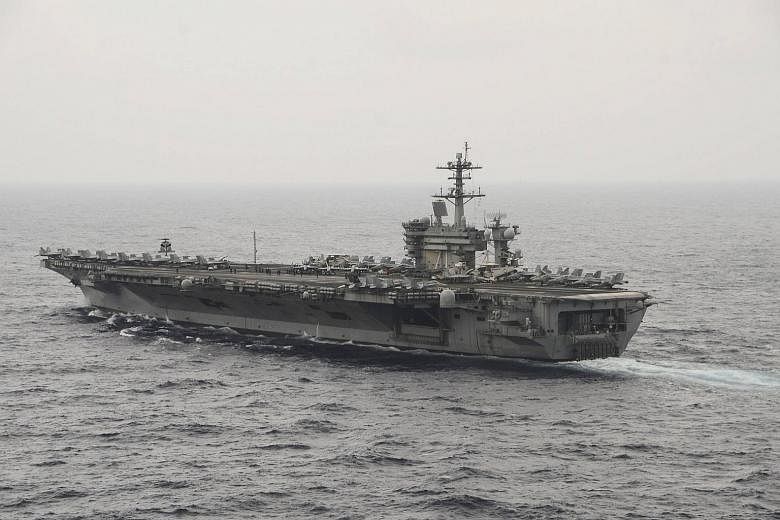China has offered a new approach over South China Sea maritime spats in what appears to be a bid to sideline Japan and win over South-east Asian states with an apparent openness to abide by international law.
But analysts say as long as Beijing sticks to its stand that the disputed islands are its ancestral property, it would be hard to live up to its offer to follow the rules. And if China maintains assertive actions such as land reclamation in the South China Sea, Asean will continue to support Japan's involvement.
At the annual East Asia Summit on Sunday, Chinese Premier Li Keqiang unveiled a five-point approach that sees Beijing linking for the first time the South China Sea issue with a call to uphold the United Nations Charter and defend the outcome of World War II and the post-war order.
Analysts say Beijing's move in linking the South China Sea with the post-war order reflects an attempt to halt Tokyo's increased involvement, such as its support of US freedom of navigation patrols.
Jinan University's Sino-Asean expert Zhang Mingliang said China is also pointing out that it had recovered the disputed Paracel and Spratly isles from Japan, with military vessels provided by the US, after the war. "China's message is that its claims are part of the current world order and that Japan's remilitarism efforts may see a return of the world order during WWII," Professor Zhang told The Straits Times.
International Crisis Group senior analyst Xie Yanmei said China is also trying to project itself as a stakeholder in the current order "whose interests overlap significantly with other members of the region, and therefore, external intervention - namely by the US and its allies - is unnecessary and destabilising".
But she believes Asean, the United States and Japan are unlikely to be assured by China's proposal "as this is not the first time Beijing verbally pledges goodwill but continues with actions that change facts on the ground".
Similarly, Prof Zhang said, Beijing's attempt to undermine support for Tokyo's role would be futile as the strategic mistrust between China and Asean members, especially the claimant states, is too wide now.
"For Asean states, Japan offers much more benefit than China in economic aid and opportunities. Strategically, China is seen as a threat to these countries, especially the Philippines and Vietnam, while Japan is viewed as a supporter able to provide training and equipment in countering Beijing," he added.
Similar scepticism abounds over the other proposals in Beijing's five-pronged approach.
They are: claimant states to settle disputes based on international law, including the UN Convention on the Law of the Sea of 1982; China and Asean to conclude the code of conduct and improve mutual trust and cooperation; external countries to avoid actions that may fuel tension; all countries to commit to uphold the freedom of navigation and overflight in accordance with international law.
Ms Xie said Asean members are unlikely to be convinced of China's sincerity in reaching a meaningful code of conduct unless Beijing agrees to a timeline.
Singapore-based analyst Ian Storey said China's commitment on freedom of navigation is to be welcomed, although its concept refers to free flow of maritime trade but excludes military activities in its Exclusive Economic Zone and in the waters around the atolls it occupies in the Spratlys, including the reclaimed features.
He said it remains to be seen if the new approach would foreshadow a less assertive stance by China and an easing of tensions in the South China Sea. "I'm sceptical because I don't believe China will ever compromise its territorial and jurisdictional claims in the South China Sea, especially at a time when its economic and military power is growing," added Dr Storey of the Iseas-Yusof Ishak Institute.


